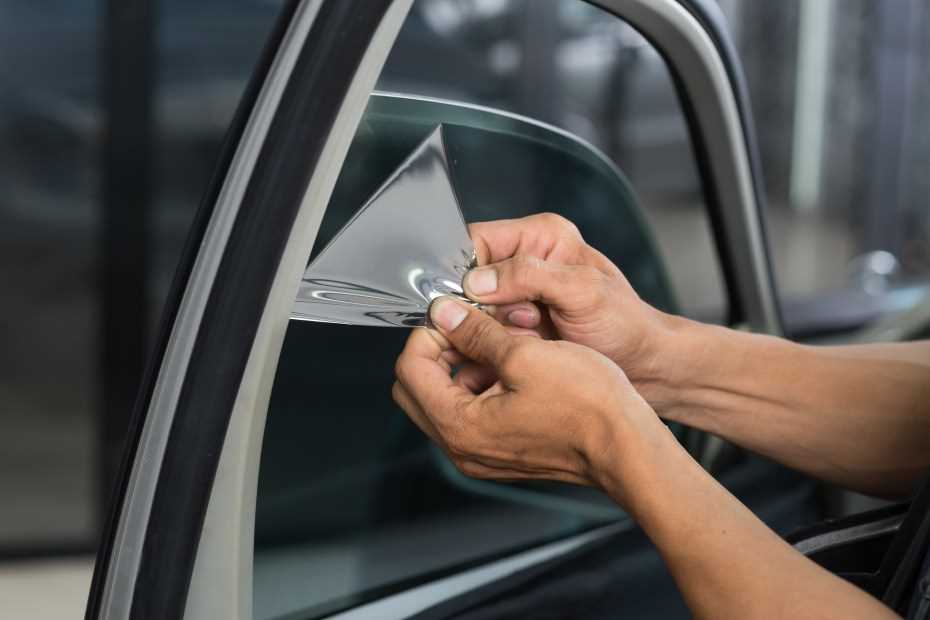Last Updated on January 31, 2024 by Vadym

Many car owners choose to tint their windows for various reasons. Tinted windows can enhance privacy, reduce glare, and block harmful UV rays. However, if you have tinted windows and are involved in an accident or your car gets damaged, you may wonder if your insurance will cover the cost of repairing or replacing the tinted windows.
The answer to this question depends on several factors, including the type of insurance coverage you have and the cause of the damage. In general, most insurance policies cover damages caused by accidents, theft, vandalism, or natural disasters. However, the coverage for tinted windows may be subject to certain limitations and exclusions.
It’s important to note that some insurance companies may consider tinted windows as a vehicle modification. As such, if your policy excludes coverage for modifications, the cost of repairing or replacing the tinted windows may not be covered. However, if your policy does cover modifications, you may be able to file a claim for the damage to your tinted windows.
Before making any assumptions about your insurance coverage, it’s essential to review your policy carefully and consult with your insurance provider. They will be able to provide you with the most accurate information regarding your specific coverage and any potential limitations or exclusions that may apply to tinted windows.
Understanding Tinted Windows
Tinted windows, also known as window film, are a popular addition to many vehicles. This thin, adhesive film is applied to the interior surface of the vehicle’s windows, providing a variety of benefits to the driver and passengers.
One of the primary reasons people choose to tint their windows is for privacy. Tinted windows make it difficult for people outside the vehicle to see inside, which can be particularly useful in urban areas or when parked in public spaces. Additionally, tinted windows can help protect the interior of the vehicle from UV rays, which can cause damage and fading to upholstery and dashboard materials.
In addition to privacy and protection from UV rays, tinted windows can also help to reduce glare from the sun. The film on the windows is designed to reflect and absorb sunlight, making it easier for the driver and passengers to see clearly, especially in bright conditions.
Some people also choose to tint their windows for aesthetic reasons. Tinted windows can give a vehicle a sleek, modern look, and many different shades and colors are available to choose from. This allows drivers to personalize their vehicles and make them stand out from the crowd.
It is important to note that the regulations regarding tinted windows vary by state and country. Each jurisdiction has its own laws regarding how dark the tint can be and which windows are allowed to be tinted. Before applying window tint, it is crucial to research and understand the local regulations to avoid any legal issues.
When it comes to insurance coverage for tinted windows, it typically depends on the insurance policy and the circumstances of any potential damage. In some cases, window tint may be considered a customization or modification, and coverage may be limited or require an additional endorsement. It is recommended to contact your insurance provider to discuss your specific coverage and any potential implications of tinted windows on your policy.
Why People Choose Tinted Windows
Tinted windows are a popular choice among car owners for a variety of reasons. Here are some of the main benefits and reasons why people choose to tint their car windows:
1. Privacy and Security: Tinted windows provide an increased level of privacy and security. They make it difficult for others to see into your vehicle, which can deter theft and break-ins. This added privacy also allows you to feel more comfortable and relaxed while driving or parked in public areas.
2. Protection from UV Rays: Tinted windows offer protection from harmful UV rays. They can block up to 99% of the sun’s ultraviolet (UV) radiation, which is known to cause skin cancer and premature aging. This is especially important if you spend a lot of time driving or have children or pets in the car.
3. Heat Reduction: Tinted windows can significantly reduce the amount of heat that enters your car. They can block out a significant portion of the sun’s heat, making your car more comfortable and reducing the need for excessive air conditioning. This can also help to prolong the life of your car’s interior by preventing sun damage and fading.
4. Glare Reduction: Tinted windows can help to reduce glare from the sun, headlights, and other bright lights. This can improve visibility and reduce eyestrain, making your driving experience safer and more enjoyable, especially during long trips or when driving in bright daylight.
5. Enhanced Aesthetics: Many car owners choose tinted windows for the aesthetic appeal. Tinted windows can enhance the overall appearance of your car and give it a sleek, stylish look. With a variety of tint shades to choose from, you can customize the look of your vehicle and make it stand out from the crowd.
It is important to note that the specific tinting laws and regulations vary by country and state. Always check your local laws and regulations before having your windows tinted to ensure compliance.
Insurance Coverage for Tinted Windows
One of the first things many car owners consider after purchasing a new vehicle is getting their windows tinted. Tinted windows offer a variety of benefits, including increased privacy, reduced glare, and protection against harmful UV rays. However, one question that frequently arises is whether insurance will cover the cost of tinted windows in the event of damage or loss.
Unfortunately, the answer to this question can vary depending on your insurance policy and provider. In most cases, basic auto insurance policies do not automatically cover the cost of tinted windows. These policies typically only cover damages directly related to accidents, theft, or vandalism.
However, it is important to note that there are some insurance companies that offer additional coverage options for tinted windows. They may provide coverage for any damage caused to the tint film itself, or even for the replacement of the entire window if it is damaged beyond repair. These types of coverage options may be available as part of a comprehensive insurance policy or as an add-on to your existing coverage.
If you are interested in obtaining insurance coverage for your tinted windows, it is recommended that you contact your insurance provider directly to inquire about their specific policies and options. They will be able to provide you with information on any additional coverage options that may be available to you, as well as any associated costs or deductible amounts.
It is worth noting that if you choose to have your windows tinted after already having insurance coverage in place, it is important to notify your insurance provider. Failure to do so may result in the denial of any future claims related to your tinted windows.
In conclusion, while basic auto insurance policies may not typically cover the cost of tinted windows, it is possible to obtain additional coverage for this modification. Contacting your insurance provider directly is the best way to determine what coverage options are available to you and how to proceed.
Factors That Affect Insurance Coverage
When it comes to determining whether insurance covers tinted windows, there are several factors that can affect your coverage. These factors can vary depending on the insurance company and policy terms, but there are some common considerations to keep in mind:
1. State Regulations:
Insurance coverage for tinted windows can be influenced by state regulations. Some states restrict the darkness level of window tinting allowed, while others have no restrictions at all. Insurance companies may take these regulations into account when determining coverage.
2. Type of Tint:
The type of tint you have on your windows can impact your insurance coverage. Some insurance companies may have specific requirements or limitations for certain types of window tinting materials. It’s important to review your policy or contact your insurance provider to understand any limitations or requirements they may have.
3. Installation Certificate or Receipt:
Having a valid installation certificate or receipt for your window tint can also affect your insurance coverage. Insurance companies may require proof that the tint was installed by a licensed professional. This can help ensure that the tint was installed correctly and can reduce the risk of damage or other issues.
4. Safety Features:
Some insurance policies may provide coverage for tinted windows if they are installed for safety purposes. Tinted windows can provide privacy, reduce glare, and protect against harmful UV rays. If you can demonstrate that your window tinting enhances the safety of your vehicle, it may increase the likelihood of insurance coverage.
5. Deductibles and Coverage Limits:
The amount of insurance coverage you have for tinted windows may also be influenced by your policy’s deductibles and coverage limits. It’s important to review your policy documents or contact your insurance provider to understand the specific coverage details for tinted windows.
Remember, insurance coverage for tinted windows can vary depending on the insurance company and policy terms. To ensure you have the appropriate coverage, it’s important to review your policy documents, ask questions, and communicate with your insurance provider.
What to Consider Before Tinting Your Windows
Tinting your windows can offer a range of benefits, from added privacy to protection against harmful UV rays. However, before tinting your windows, there are a few factors to consider:
- Local Laws: It’s important to check your local laws and regulations regarding window tinting. Each state or country may have different rules regarding the maximum tint percentage allowed on different windows.
- Insurance Coverage: If you’re considering tinting your windows, it’s essential to review your insurance policy. Some policies may cover window tinting, while others may not. It’s advisable to contact your insurance provider to understand the coverage they offer for tinted windows.
- Quality of Tint: The quality of window tint can vary significantly. It’s worth investing in high-quality tint to ensure durability and longevity. Cheap tints may fade or peel over time, resulting in additional costs for repairs or replacement.
- Professional Installation: While DIY tinting kits are available, it’s recommended to have your windows tinted by a professional. Professional installers have the necessary skills and equipment to ensure a proper installation and minimize the risk of air bubbles or creases in the film.
- Visibility and Tint Percentage: Consider the tint percentage and how it will affect your visibility, both during the day and at night. Darker tints may reduce visibility, especially in low light conditions, which can affect your safety while driving.
- Maintenance and Care: Window tints require regular maintenance to keep them looking their best. Cleaning them with gentle products and avoiding abrasive materials is essential to prevent scratching or damaging the tinted film.
- Resale Value: Keep in mind that tinted windows may affect the resale value of your car. While some buyers may appreciate the added privacy and protection, others may see it as an added expense if they prefer to have untinted windows.
By considering these factors before tinting your windows, you can make an informed decision that suits your needs and preferences while also being compliant with local laws and regulations.
